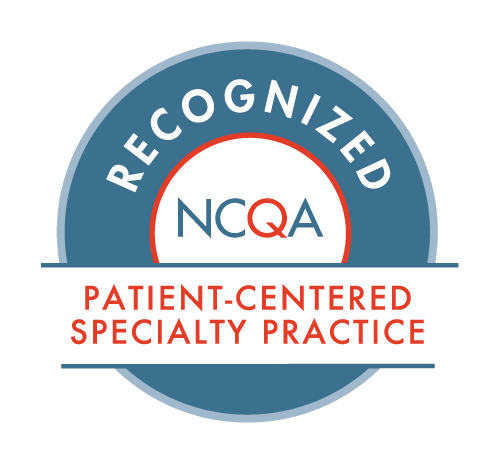How Dyslipidemia Affects Heart Health
- Posted on: Jan 12 2026
Hearing the word dyslipidemia can feel confusing at first, especially when all you see is a high number on your lab report. In simple terms, it means the fats in your blood are out of balance, and that imbalance can quietly influence your heart’s health over time.
What Is Dyslipidemia?
Dyslipidemia is the medical term for an unhealthy balance of fats or lipids in your blood. Your standard lipid panel usually measures the following:
- LDL cholesterol, often called the “bad” cholesterol
- HDL cholesterol, known as the “good” cholesterol
- Triglycerides, another type of fat that stores excess energy
When LDL or triglycerides are too high, or HDL is too low, these particles can quietly irritate the walls of your arteries. Higher LDL is directly linked with a higher risk of heart attack and stroke, while very low HDL is associated with more cardiovascular events over time. Dyslipidemia makes it easier for plaque to build up and harder for your body to clear it away.
How Does Dyslipidemia Affect Heart Health?
Inside your arteries, LDL particles can slip beneath the inner lining and become oxidized. Your immune system recognizes this as an injury and sends in inflammatory cells. Over time, this process creates fatty streaks, then thicker plaque that narrows the artery and stiffens the vessel wall.
When you live for years with untreated dyslipidemia, this plaque can grow and harden. It may limit blood flow to your heart, causing chest discomfort with exertion, or it may rupture suddenly and form a clot that blocks the artery, leading to a heart attack.
Large analyses have shown that for every step up in LDL cholesterol, your heart attack risk rises, and lowering LDL by about 38 mg/dL can reduce major cardiovascular events by roughly 22%.
What Causes Dyslipidemia?
You may develop dyslipidemia from a combination of several factors.
Some causes are lifestyle-related, and they include:
- Diets high in saturated fats, trans fats, and added sugars
- Smoking
- Heavy alcohol use
- Low physical activity
- Excess weight
On the other hand, some people inherit a stronger tendency toward abnormal cholesterol levels. Conditions such as familial hypercholesterolemia can lead to very high LDL from a young age.
The following medical issues can also negatively affect your lipid profile:
- Type 2 diabetes
- Hypothyroidism
- Chronic kidney disease
Types of Dyslipidemias
High LDL Cholesterol
Some people primarily have high LDL cholesterol. This pattern strongly drives plaque formation and is a major target for statin therapy (medications that help reduce your LDL levels). When LDL stays high over time, your risk of heart attack and stroke increases substantially, even if you feel well.
High Triglycerides and Low HDL
Others mainly have high triglycerides with low HDL. This combination is often linked with abdominal obesity, insulin resistance, and a higher risk of both heart disease and pancreatitis.
You may also hear your cardiologist mention “non-HDL cholesterol” or ApoB, which reflects the total number of plaque-forming particles rather than just LDL alone. These markers can sometimes predict cardiovascular risk even better than LDL itself.
Additional Markers That Refine Cardiovascular Risk
Sometimes, a standard cholesterol panel does not tell the whole story. If your overall risk seems higher than your LDL number alone suggests, or if family history plays a role, your cardiologist may look at additional markers to better understand what is happening inside your arteries.
Cholesterol travels through the bloodstream in particles, and smaller, denser LDL particles tend to enter the artery wall more easily, where plaque can form. Tests such as ApoB help estimate the total number of plaque-forming particles, while ApoA reflects protective HDL-related particles.
Lipoprotein(a), or Lp(a), is largely genetic and can raise cardiovascular risk even when LDL appears controlled. CRP, an inflammation marker, may also be used to understand whether blood vessel inflammation is contributing to risk. These markers do not replace standard cholesterol testing, but they can help personalize dyslipidemia care when the picture is less straightforward.
Symptoms of Dyslipidemia
Most of the time, dyslipidemia does not cause symptoms you can feel. You may feel completely fine for years. Symptoms usually appear only when plaque has already affected blood flow, and you develop heart disease or a heart attack.
Common warning signs of heart trouble can include:
- Chest discomfort or pressure
- Shortness of breath
- Sudden sweating
- Indigestion-like pain or nausea
- Unusual fatigue, especially with exertion
Who Is at Risk?
You are at greater risk for dyslipidemia if you:
- Smoke or vape nicotine
- Are a heavy drinker
- Rarely exercise
- Follow a diet with insufficient fruits, vegetables, nuts, and seeds
- Have extra weight, especially around the waist
Your risk also rises with:
- Older age
- Type 2 diabetes or prediabetes
- Metabolic syndrome
- Strong family history of high cholesterol or early heart disease
- Conditions such as hypothyroidism or chronic kidney disease
Prevention Tips
Prevention is not about perfection. It is about steady habits that keep dyslipidemia from silently progressing. Many heart attacks happen in people who felt “mostly fine” beforehand, which is exactly why Hunterdon Cardiovascular Associates emphasizes prevention.
You can protect yourself by tracking your cholesterol numbers, especially if you have risk factors or a family history of heart disease. Maintaining a healthy weight, managing blood pressure and blood sugar, and scheduling periodic cardiovascular evaluations all work together with lipid control.
Diagnosis
Dyslipidemia is usually diagnosed with a simple blood test after a period of fasting. Your lipid panel measures total cholesterol, LDL, HDL, and triglycerides. At Hunterdon Cardiovascular Associates, we may also calculate non-HDL cholesterol or other markers based on these results.
Because dyslipidemia is often silent, it is important not to wait for symptoms. Regular testing allows our team to track trends, spot problems early, and tailor your care plan before plaque causes more serious issues.
Treatment Options
Treatment is rarely “one size fits all.” Your plan may include lifestyle changes, medications, or both. Statins remain a cornerstone because strong evidence shows they lower LDL and reduce major cardiovascular events by about 20% for each meaningful drop in LDL. For some people, other medications, such as ezetimibe or PCSK9 inhibitors, may be added when LDL remains high despite statins and lifestyle efforts.
At the same time, lifestyle changes remain essential. Your care plan may include an exercise routine you can maintain, a practical nutrition strategy, and support for smoking cessation or weight management.
What Lifestyle Changes Can Help?
Lifestyle changes are powerful tools against dyslipidemia. Regular physical activity, a heart-healthy diet, and avoiding tobacco can shift your lipid profile and reduce cardiovascular events.
Movement and Exercise
Try to be active most days of the week. It does not need to be intense, as even short walks of 10–15 minutes can help.
Heart-Healthy Eating
Meals built around vegetables, fruits, whole grains, lean proteins, and healthy fats like olive oil, nuts, and fish tend to support healthier cholesterol levels. Cutting back on fried foods, packaged snacks, sugary drinks, and heavy alcohol use also helps ease strain on your arteries and makes weight control more manageable over time.
Other Daily Habits
If you smoke, quitting is one of the best decisions you can make for your cholesterol and your overall health.
Schedule Your Heart Evaluation
Hunterdon Cardiovascular Associates is committed to providing the highest quality of care in a patient-centered environment. Our offices are in Flemington, Clinton, and Bridgewater, New Jersey. To make an appointment with one of our cardiologists, call us at (908) 788-1710 or request an appointment online.
Posted in: Cardiovascular Diseases



